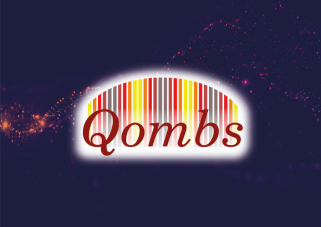
Quantum Principles
Quantum technology will change our daily life in various aspects. Here you can learn more about the underlying principles and get an insight into quantum physics. You can also watch hand-picked educational videos in our Quantum Playlist.
Quantum principles refer to the fundamental laws that govern the behaviour of particles at the quantum level. For instance, wave-particle duality of matter, uncertainty principle, and superposition. Thus, quantum mechanics challenges the classical sense by demonstrating that particles do not necessarily have a definite location or momentum until they are observed. Moreover, the outcome of an experiment can only be predicted with a certain level of probability. These principles have profound implications for the way we understand and interact with the universe, and have led to technological advances that are transforming fields such as computing, sensing, communication and simulation.
Basic Science
While some quantum technologies have reached a significant level of maturity and have even reached the market, it is crucial to pursue the study of open scientific questions – both experimental and theoretical – in order to develop more applications, and to ensure flexibility in the evolution of quantum technologies and ensure their long-term impact. New science provides new ideas for quantum technologies, but also developing quantum technologies stimulates new questions to be answered by new science.
Communication
Quantum communication will help protect the increasing amounts of citizens’ data transmitted digitally, for instance health records and financial transactions. A typical implementation of quantum networks uses single photons. If anything intercepts a single photon it will be noticed, meaning that with quantum technology we can achieve the most secure form of communication known, impossible to intercept without detection. For point-to-point communication, this is already on the market today and will be developed further into a quantum internet.
Computing
Quantum computers will make enormous computing power available to solve certain problem classes. They are built from “quantum bits” (individual atoms, ions, photons or quantum electronic circuits) and exploit superposition and entanglement, to solve problems we could never solve otherwise. That includes, for example, processing vast amounts of data faster than ever before to search databases, solve equations, and recognise patterns. They may even have the potential to train artificial intelligence systems, e.g. for digital assistants that help doctors to diagnose diseases and suggest the most promising therapy, or to optimise the routes of all cars in a city simultaneously to avoid traffic jams and reduce emissions.
Sensing & Metrology
Besides Quantum Communication, Quantum sensors will arguably be the basis for the first applications of Quantum Technologies. They provide the most accurate measurements and will drastically increase the performance of consumer devices and services, from medical diagnostics and imaging to high-precision navigation, to future applications in the Internet of Things. Quantum sensors use similar technologies as quantum computers and networks: they detect the tiniest disturbances because they are based on e.g., single electrons, the smallest possible charges and magnets. Quantum metrology uses quantum sensors to define the standards for e.g. time-keeping or electrical measurements.
Simulation
Closely related to quantum computers are quantum simulators. They will be key to the design of new chemicals, from drugs to fertilisers for future medicine and agriculture, and of new materials, such as high-temperature superconductors for energy distribution without losses. Closely related to quantum computers are quantum simulators. They will be key to the design of new chemicals, from drugs to fertilisers for future medicine and agriculture, and of new materials, such as high-temperature superconductors for energy distribution without losses. Some quantum simulators are specialised quantum computers. Others imitate the idea of a wind tunnel: while there, small models are used to understand the aerodynamics cars or planes, some quantum simulators use simple model quantum systems (such as an array of single atoms) to understand systems that would be even more difficult to experiment with.










